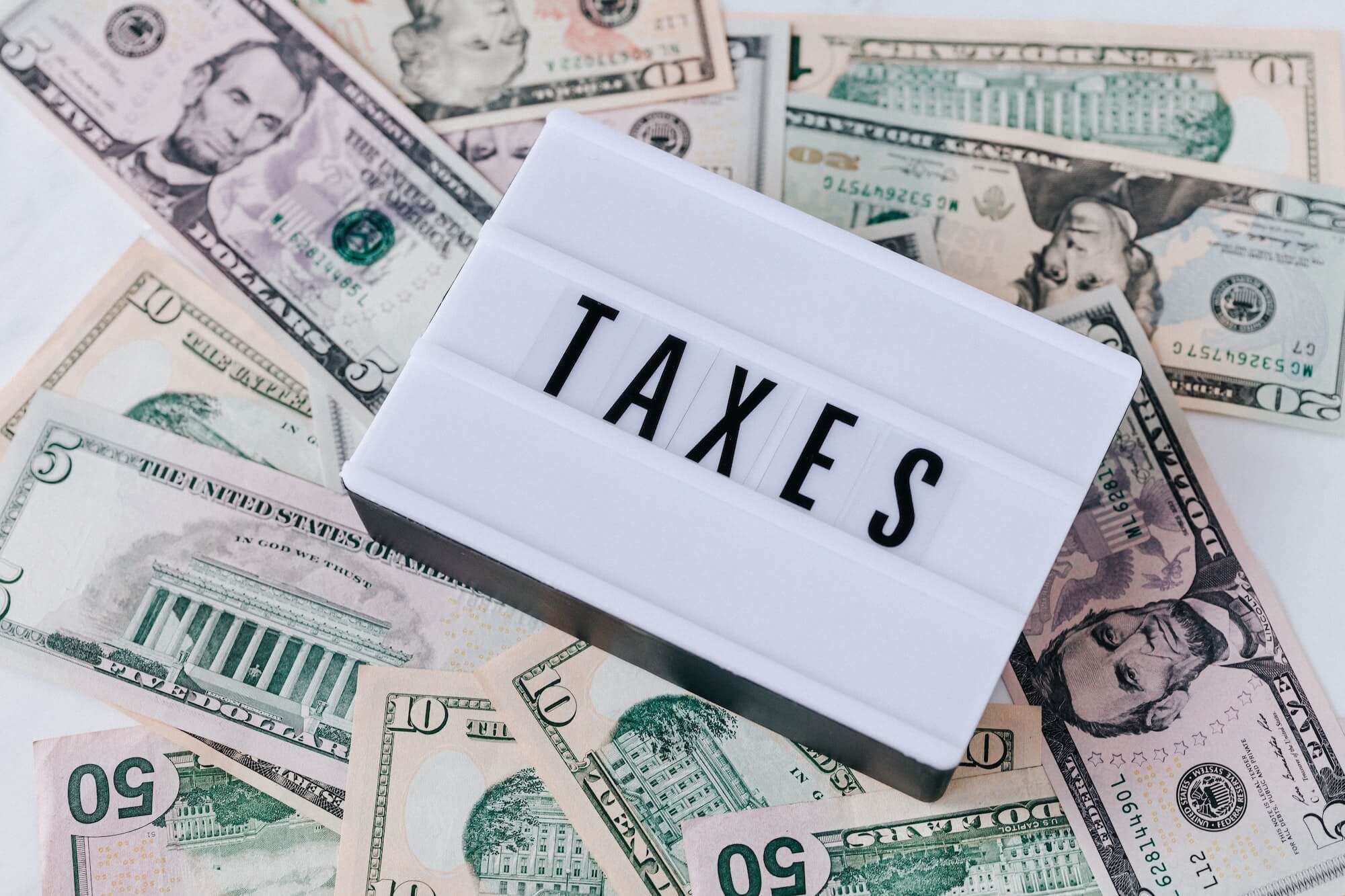In 2021, Florida saw over 528,000 sales of existing homes. This was a 19% increase compared to 2020.
For property taxes, Florida’s median property tax is $1,773 yearly. This is for a home valued at $182,400. Out of all 50 states, Florida ranks number 23 for the average amount of collected property taxes.
Whether you’re just moving to Florida or have been a resident for quite some time, you’re probably interested in learning more about Florida real estate taxes, what your money goes towards, how these rates are calculated, and what recourse you have if you disagree with them.
This article walks you through real estate Tax in Florida, so you’re more prepared for your next home purchase or investment. Keep reading to learn more about real estate tax in Florida.
How Property Taxes In Florida Work
Every county in Florida is responsible for setting its millage rate. A millage rate corresponds to tax payable for every dollar of the assessed property value.
As each county sets its millage rate, one thing remains the same: one mil is equivalent to $1,000 of value. You can also say that one mil equals $1.
No matter what the property category, the millage rates are the same. This means that residential properties have the same millage as industrial properties. Florida has 640 total local governments that assess property tax, including municipal, school boards, school districts, and counties.
If you’re a homeowner in Florida and pay your tax bill early, you can receive upwards of 4% off your tax bill. However, late tax payments might mean that the local tax collector puts a Tax Certificate on a property that’s sold to debt collectors or investors.
Each local government needs its information verified for accuracy. Florida’s Department of Revenue oversees this information and also approves the budget. This department also ensures all tax rates comply with TRIM (Florida Truth-in-Millage) requirements.
TRIM Benefits
TRIM takes into consideration the Florida personal income per capita and limits the max millage rate based on it. Suppose you’re looking to calculate your property taxes in Florida. In that case, you need access to your property’s assessed value, your county, city, or special district’s millage rate, and any special programs or exemptions applicable to your property.
It’s important to understand that the millage rate can vary yearly and is determined by each county. The Florida Department of Revenue sets your property’s assessed value. You will find your county millage rate on the Florida Department of Revenue’s website.
Can You Appeal Your Home Value?
You can appeal your appraised property value for your Florida real estate tax rate, but you can’t change the millage rate. You can file a petition with the county VAB (value adjustment board) or call the property appraiser’s office to discuss the matter directly.
Each county VAB consists of five members. They review and decide any challenges on property assessment, along with classification and exemption challenges. Keep in mind that the VAB has no affiliation with the tax collector or property appraiser, which means they can’t modify your local government’s millage rates.
Types of Taxes in Florida
Before you delve into Florida’s property tax system, it’s important to understand the different types of taxes in Florida.
There are three kinds: Property Tax, Capital Gain Tax, and Foreign Investment in Real Property Tax Act (FIRPTA).
Property Tax
Florida property taxes go towards local schools, improve infrastructure, and assist medical services and libraries. Property tax also works to keep roads in safe driving conditions. Local property appraisers determine these rates every January 1.
Capital Gains Tax
If you make money off of real estate investments in the US, the government taxes you. This is only for investment property.
Any property you purchase and sell for profit is subject to this type of tax. The tax is based on any profit you make on your property’s appreciation since you bought it.
FIRPTA
FIRPTA (Foreign Investment in Real Property Tax Act) applies when a foreign purchaser rents out their residence more than 50% of the time. Upon the sale of the residence, 10-15% of the proceeds go to the US government. FIRPTA is similar to the capital gains tax paid by U.S. citizens.
If you have short-term rentals, a sales and use tax is typically charged to the renter. The landlord is responsible for submitting these taxes to the local municipality and the State of Florida. Discover how to register and collect the appropriate taxes with ease.
Property Tax System in Florida
On January 1st of every year, property appraisers assess all real estate in Florida. Come August, the property appraiser sends a Notice of Proposed Property Taxes to every homeowner.
The local government is responsible for determining annual budgets, and the county tax collector mails bills to each homeowner, which they receive in October or November. This tax bill is due by the following March 31.
If you’re looking for property assessment information, you can visit property appraiser websites. Tax collector websites also feature property assessment information. You can also call your local tax collector’s office for more information.
Here is a list of items that may reduce your property taxes.
Homestead Exemption
No matter what type of property you own, it has a just value, a taxable value, and an assessed value.
For starters, the just value relates to the property’s market value. When you take the just value and subtract assessment limitations, you get the assessed value.
Finally, the taxable value is based on the assessed value, less exemptions. The tax collector uses this value to calculate what taxes you owe
However, the Homestead Exemption may provide you upwards of $50,000 in tax liability exemptions.
But what is the Homestead Exemption?
In short, any Florida resident with an equitable or legal title to a property and resides on that property is eligible for a homestead exemption up to $50,000.
The first half of that goes towards all property taxes. The second $25,000 goes towards an assessed value of $50,000 and only goes to non-school taxes.
Save Our Homes
A year after your property receives the homestead exemption, the value it’s assessed at for every subsequent year is not to increase by more than 3%. The difference between the just and assessed value is known as the Save Our Homes benefit.
Remember that this benefit only applies to property value, not property taxes. On January 1, 1995, the Florida Constitution was amended to reflect this change.
Previous Taxes
It’s not uncommon for new homeowners to question why their taxes are higher than the previous owners, or even their neighbors. Whenever a property changes hands, the property assessor has to remove any exemptions, reassessing the property. From there, the assessed value equals the just value.
When you purchase property, understand that this takes place on the following January 1. You’ll see previous exemptions and the Save Our Homes benefit remain intact until January 1. Your first tax bill represents what the previous owner paid and does not reflect what your tax bill will be in the future.
However, if you owned real estate on January 1 of that year, you can apply for the homestead exemption by March 1. As such, your tax bill for the remainder of the year will show a possible reduction in taxable value.
Keep in mind that the Save Our Homes benefit will come into effect the following year.
Tax Returns
The IRS requires homeowners to file tax returns for the sale of any property. If the IRS owes you a refund, you’ll receive it after the IRS processes it at the beginning of the following calendar year.
If you’re a seller and want to defer capital gains, you can use the 1031 Exchange. This is where you put sale proceeds into an escrow account held by a qualified intermediary.
You then need to find three investment properties you’re looking to acquire within 45 days of your most recent investment property sale.
As an investor, you have to close on the sale of one of those investment properties within 180 days of when your last investment property was sold.
Remember to Ask Questions
Always ask questions about property taxes before purchasing a home. You can ask your real estate agent, mortgage lender, or property appraiser by calling your county tax assessor’s office.
Florida Real Estate Taxes
Now that you know more about Florida real estate taxes, you can start looking for the home of your dreams. Contact your local tax assessor’s office if you have questions about local property taxes.
Brista Realty is here to guide you through the home-buying process. Contact us today, and a trusted real estate agent will be happy to assist you!


